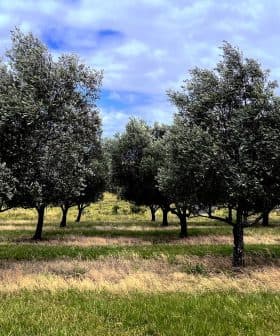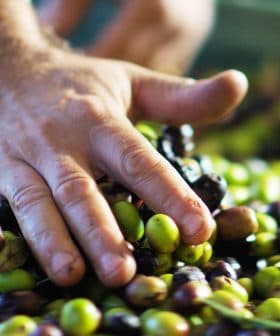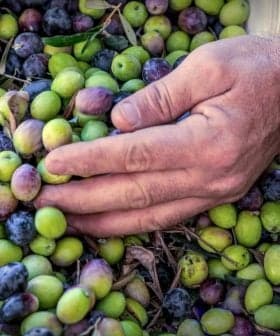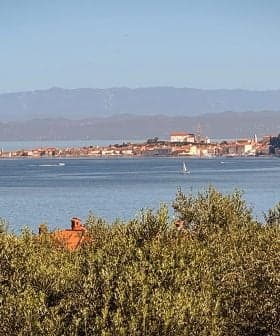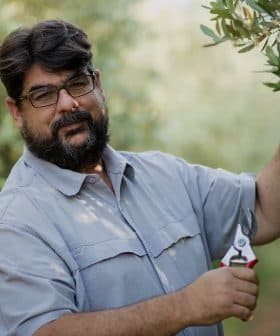Egypt Wants to Plant 100 Million Olive Trees for Oil Production
While Egypt is the world's second largest producer of table olives, very little infrastructure in the country is dedicated to olive oil production.
 El Tur on the Sinai Peninsula
El Tur on the Sinai PeninsulaEgypt’s Agriculture Minister announced a plan to plant 100 million olive trees by 2022 to increase olive oil production, with land available for both Egyptian and foreign investors to establish factories near the plots. Egypt aims to boost its olive oil production to bring added value to the agricultural sector, create jobs, and provide much-needed hard currency for the economy.
Egypt’s Agriculture Minister Ezz El Din Abu Steit has unveiled the country’s ambitious goal of planting 100 million olive trees in Egypt by 2022 in an effort to boost the country’s olive oil production.
The plan was announced at a seminar on new investment opportunities in the Egyptian olive sector, which preceded the International Olive Council’s (IOC) fifty-third meeting that took place in Cairo last month. Egypt rejoined the IOC last year after its membership was revoked in 2017.
We need well-equipped factories to extract and produce olive oil. These factories should be established near the plots planted with olives. So it is very important to breathe new life into agricultural investment.
The Egyptian government has made plots of land available for investors. Both Egyptian and foreign investors will have access to plots making up 10,000 acres in Upper Egypt’s West Minya and 25,000 acres in Matrouh, along with designated land in the oases of the Western Desert.
A further, 10,000 acres in the El Tur area of the southern Sinai Peninsula will be reserved exclusively for Egyptian investors.
See Also:Africa and the Middle EastAbu Steit highlighted progress on the expansion of Egypt’s olive groves, which have grown from 5,000 acres in the late 1970s to 108,000 by the millennium and now encompass 240,000 acres.
Egypt is the world’s second largest producer of table olives and produced around 450,000 tons in 2018/19 of which around 100,000 tons were exported.
Whilst the country has been able to satisfy its 3,260 percent growth in domestic consumption of table olives, olive oil production has been a meagre 20,000 tons. Many in the agricultural sector hope increasing olive oil production will bring much needed added value to the sector.
Hussein Abu Saddam, head of the Egyptian Farmers Syndicate confirmed the need for investors to boost olive oil production, telling Al-Monitor: “This step is inevitable. The olive tree is the most suitable tree to be cultivated in the country since it can be planted in different types of soil and does not consume large quantities of water.”
He also raised the need for the government to introduce measures that would prevent and combat olive tree diseases during the expansion program.
Abu Saddam who said that 100 million olive trees equated to an olive tree for every citizen added, “we need well-equipped factories to extract and produce olive oil. These factories should be established near the plots planted with olives. So it is very important to breathe new life into agricultural investment.”
Last year Olive Oil Times reported on Egypt’s aspiration to become the world’s number one table olive producer by expanding the varieties of olives cultivated and increasing production in desert lands.
Opening doors to foreign investors in the olive sector would boost the country’s ailing economy and provide much needed hard currency as well as creating jobs in the country, which is still feeling the impacts of its 2011 revolution.
Egypt has struggled to raise the $58 billion needed to fund the creation of its new and as yet unnamed capital city, which would be located about 30 miles east of Cairo by mid 2020.




